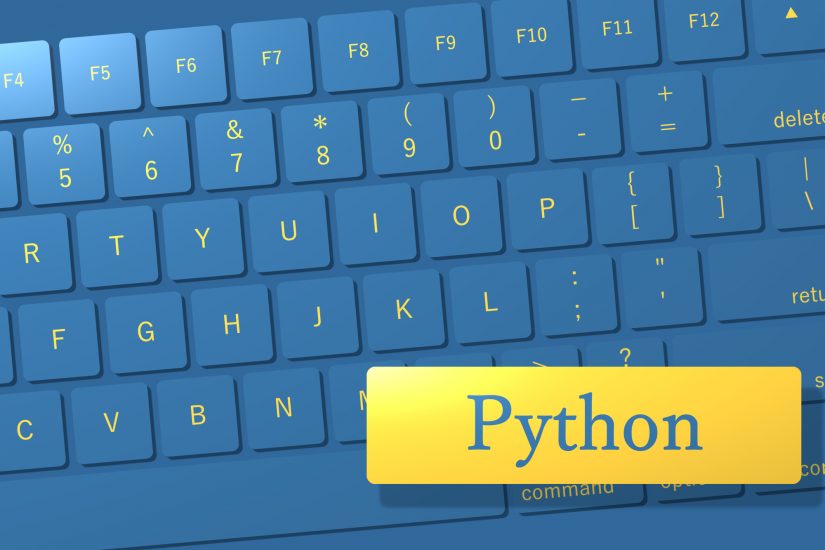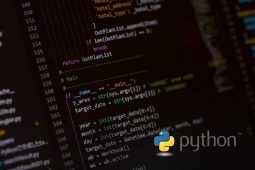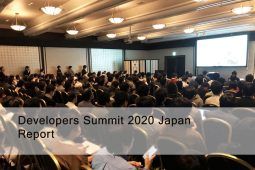Python use is growing worldwide, and with a recent dramatic rise here as well, Japan is no different. The table below shows the most recent shifts in job recruitment by programming language based on data from Indeed Japan.
| Language | Numbers of job | Rate of Increase | Number of Occurrences | Change in Rank | |
|---|---|---|---|---|---|
| May 2019 | March 2018 | ||||
| Java | 46,750 | 48,220 | 97% | -1,470 | – |
| C | 39,543 | 26,675 | 148% | 12,868 | ↑ |
| PHP | 36,700 | 28,685 | 128% | 8,015 | ↓ |
| C# | 27,760 | 23,333 | 119% | 4,427 | ↑ |
| C++ | 26,172 | 22,657 | 116% | 3,515 | ↓ |
| Python | 22,930 | 9,082 | 252% | 13,848 | ↑ |
| Ruby | 20,228 | 12,676 | 160% | 7,552 | ↑ |
| Javascript | 17,941 | 18,561 | 97% | -620 | ↓ |
| Objective-C | 14,193 | 5,834 | 243% | 8,359 | – |
(Data gathered by Indeed Japan, June 2019)
The chart shows a ranking of total recruitment based on programming language as of June 2019, and the point to focus on is the rate of increase for Python. In just over a year it has grown by 252%, and it broke 20,000 in sheer numbers of recruitment ads for the first time, with a jump of almost 14,000 ads over the previous year’s total.
When a sudden spike in recruitment like this happens, it usually reflects a staffing shortfall. In other words, there are increasing opportunities to find Python-related work in Japan for foreign engineers with knowledge of and experience in the language.
At the same time, there is a fast-paced attempt to educate staff in Japan to help erase this Python staffing shortfall. There is concern, however, that this will create more and more engineers who don’t understand the “pythonic” philosophy. Since the chief advantages of Python, including its high maintainability and ease of acquisition, are grow directly from the pythonic philosophy, an increase in unpythonic code being written means there is a danger of losing any advantage of using Python in the first place.
What is the Python Philosophy of “Pythonic?”
Pythonic is a broad term expressing a general programming philosophy. I recommend gaining an understanding of pythonic as one of your first goals.
First, below I’m including a short explanation of pythonic taken from Wikipedia. I hope it will help in your understanding of the concept.
A common neologism in the Python community is pythonic, which can have a wide range of meanings related to program style. To say that code is pythonic is to say that it uses Python idioms well, that it is natural or shows fluency in the language, that it conforms with Python’s minimalist philosophy and emphasis on readability. In contrast, code that is difficult to understand or reads like a rough transcription from another programming language is called unpythonic.
Source: http://en.wikipedia.org/wiki/Python_(programming_language)
The Python Engineer Development Co., Ltd., of which I am Chair and CEO, was established to better promote the dissemination of the Python language and pythonic philosophy in Japan, and has carried out testing related to both all over the country. These tests are based on Guido van Rossum’s The Python Tutorial, a text written with full understanding of the pythonic philosophy, and I wholeheartedly recommend it as a resource to anyone studying Python. Learning truly pythonic Python should help you become a Pythonista capable of finding work worldwide, not just in Japan.
Of course, since it is a tutorial text, beginners can gain a better understanding by reading Introducing Python first before then progressing to The Python Tutorial.
Next, I’ll discuss the state of Python use in Japan.
The primary uses of Python worldwide are in AI, machine learning, big data, OpenStack, and web applications. In Japan, since there’s been no widespread adoption of web application development using Python, the four primary categories are AI, machine learning, big data and OpenStack. Since more than half the jobs within these four categories do use Python, anyone looking for development work in them should consider Python a prerequisite. Naturally, you should also be studying AI, machine learning, big data and OpenStack themselves, as well.
Finally, let’s talk about Python related recruitment based on salary analysis.
| Annual income | Numbers of job | Rate |
|---|---|---|
| 2000000¥〜2990000¥ | 3,248 | 16.8% |
| 3000000¥〜3990000¥ | 4,840 | 25.1% |
| 4000000¥〜4990000¥ | 5,438 | 28.2% |
| 5000000¥〜5990000¥ | 2,540 | 13.2% |
| 6000000¥〜 | 3,210 | 16.7% |
(Data gathered by Indeed Japan, June 2019, excluding yearly salaries less than 2,000,000 yen)
According to this Python recruitment salary analysis, roughly 17% of the recruitment spots offer salaries of 6,000,000 yen or more. If you add specialist knowledge of AI, machine learning or big data to that, then salaries should grow even more, as these are fields requiring expertise. Clearly, anyone who’s truly interested in being the best engineer they can be will always be served by devoting themselves to study and gaining experience.









Comments are closed.